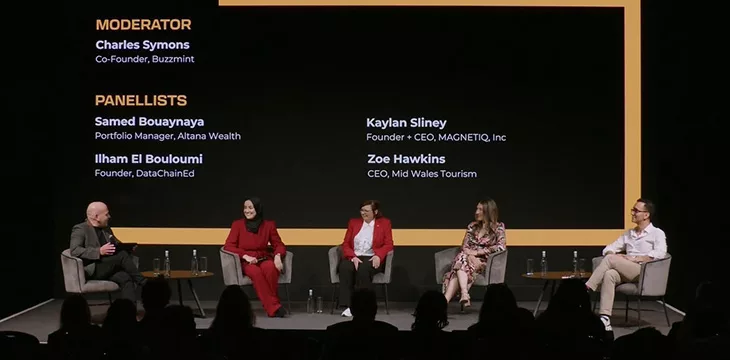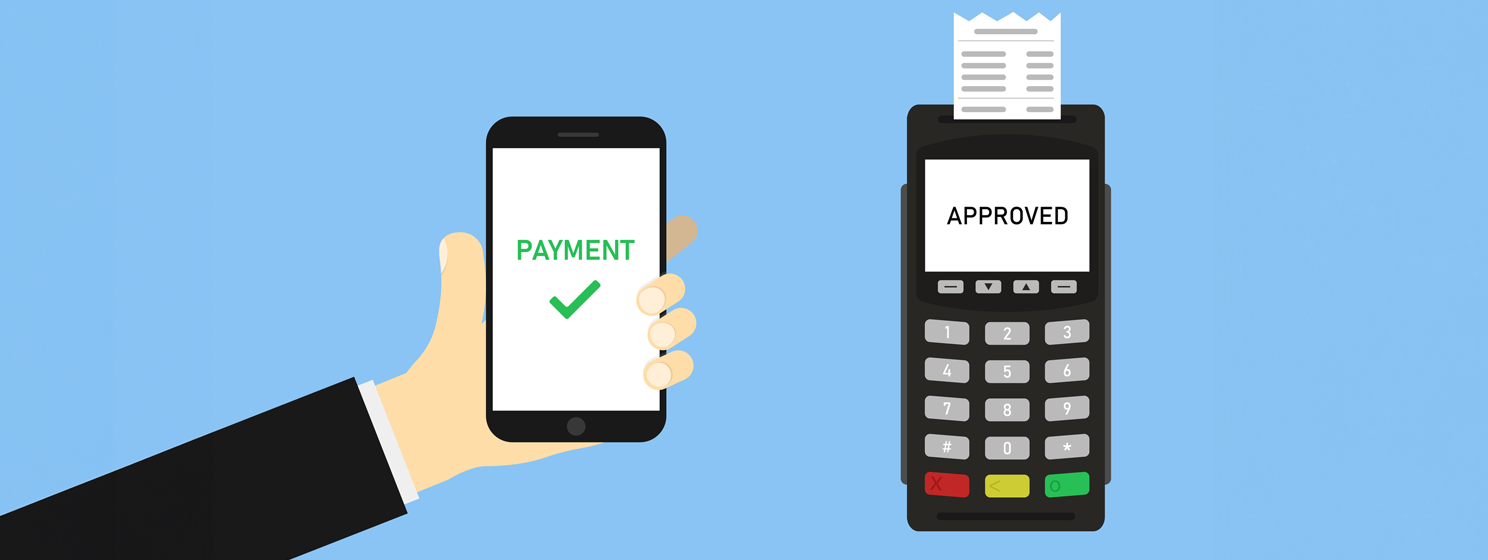|
Getting your Trinity Audio player ready...
|
Buzzmint co-founder Charles Symons hosted a panel called ‘Empowering Communities Through Tokenization’ on the third day of the London Blockchain Conference 2024.
Panelists included Altna Wealth Portfolio Manager Samed Bouaynaya, Magnetiq Inc. Co-Founder Kaylan Sliney, DataChainEd Founder Ilham El Bouloumi, and Mid Wales Tourism CEO Zoe Hawkins.
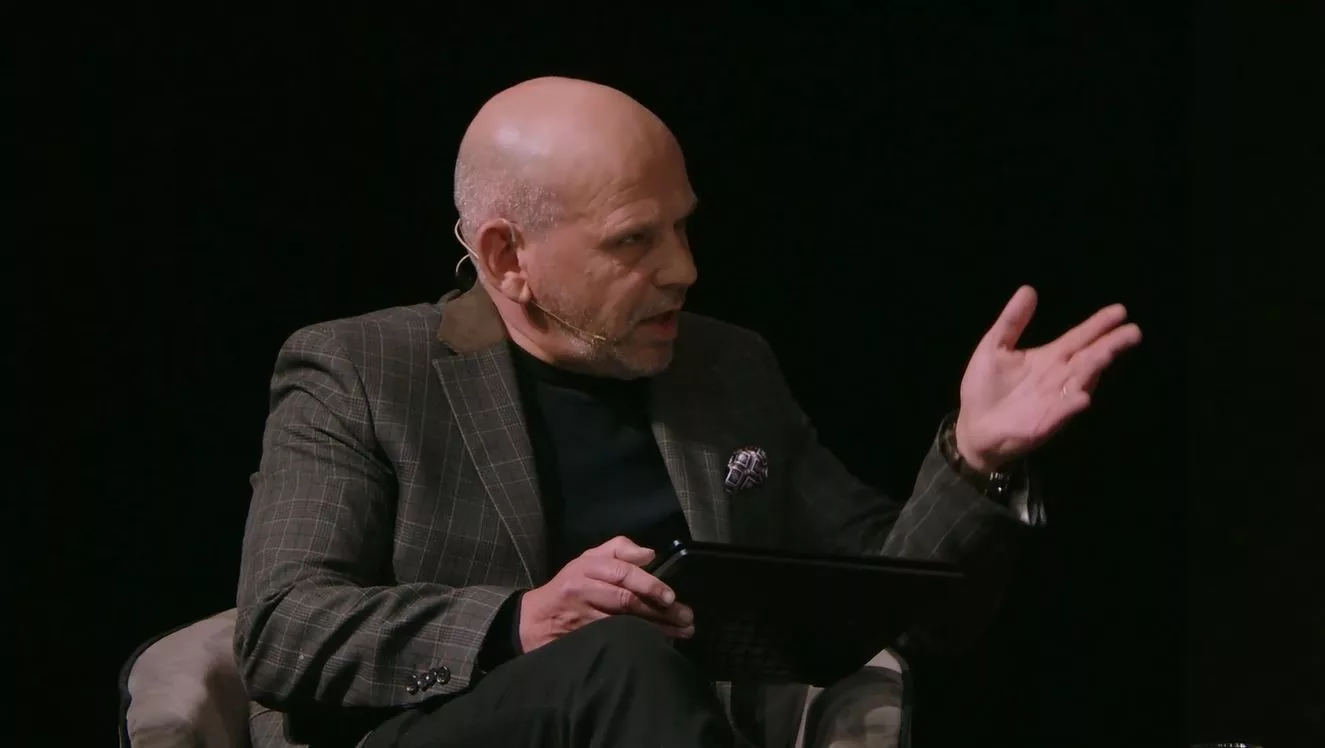
What are communities lacking in the digital era, and what are the benefits and drawbacks of digitization?
Sliney tackles this question first, noting how we traditionally rely on demographic data about communities for purposes like marketing. With tokenization, we can get much more granular psychographic data about their wider interests. Making the data anonymous means people are more willing to share it.
Bouaynaya says tokenization can be applied to use cases beyond putting financial assets on the blockchain. Intellectual property (IP), digital goods, art, commodities, and much more can be tokenized.
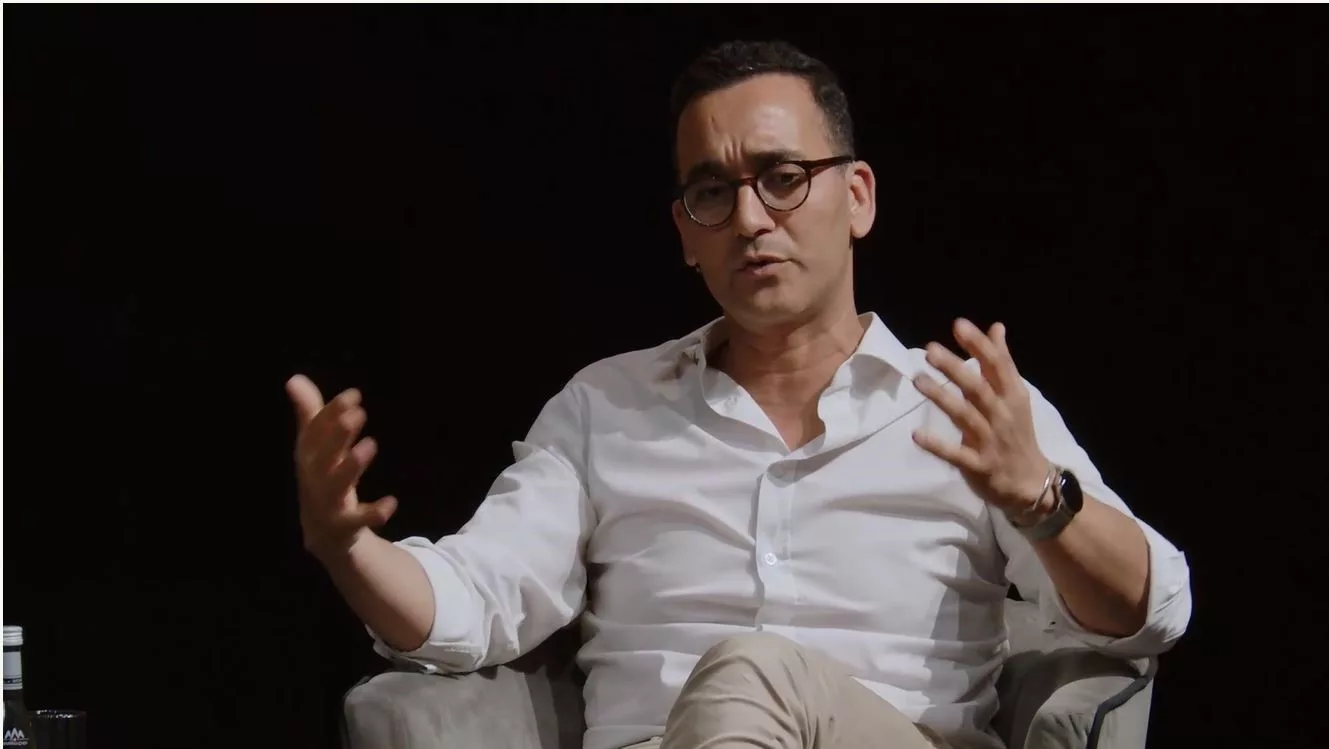
El Bouloumi notes that the definition of tokenization is quite broad. Anything from real-world assets to data can be tokenized and put on the blockchain. Essentially, it’s a way of digitizing things and moving them around on a ledger. The applications of tokenization are infinite.
Hawkins says it can give independent shops and businesses the same tools as big players, such as loyalty schemes. It also makes collaboration between parties easier.
Sliney circles back and highlights how psychographic data can allow us to connect communities with similar interests. As for onboarding them, she mentions “secretly blockchain,” meaning there’s no need for them to know anything about the tech behind the platform.
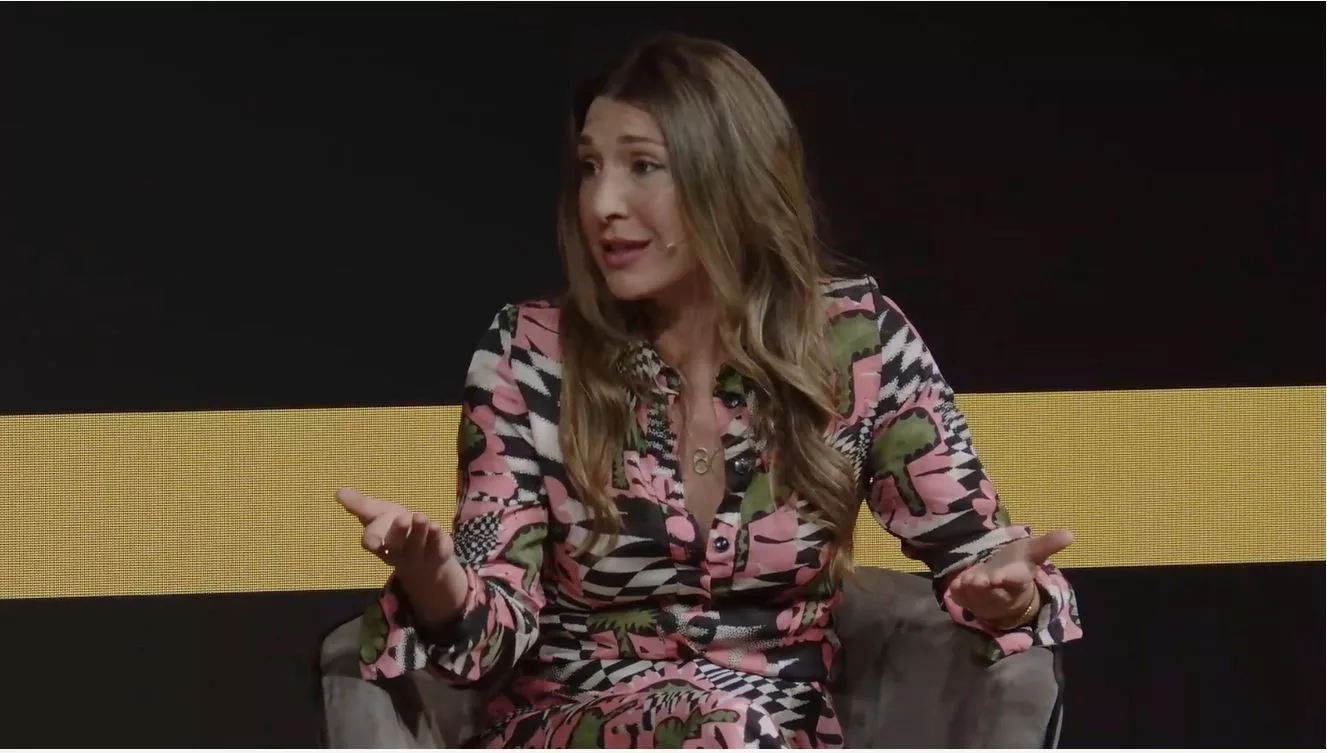
Can you share one practical example of tokenization in your projects and its impacts?
El Bouloumi starts first by saying that investing in real estate can be made much easier and accessible with tokenization. Whereas there’s typically a lot of burdensome administration and big financial commitments, tokenized real estate can be bought and sold easily and can even be made interoperable with decentralized finance (DeFi) protocols to enhance liquidity.
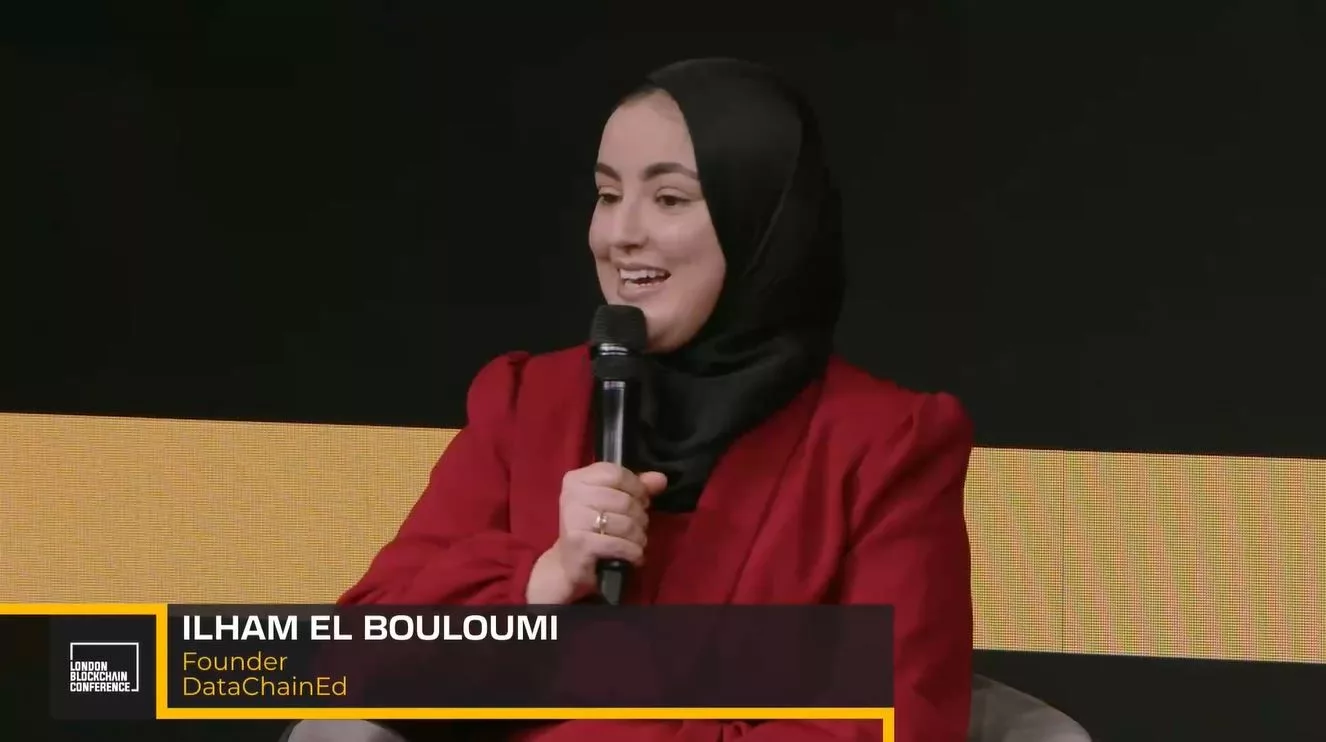
Hawkins hopes the projects they are working on can revitalize town centers, which in turn will boost tourism to the region. By empowering independent shops and businesses, they may be able to compete with big players and entice people back into the towns rather than shopping online.
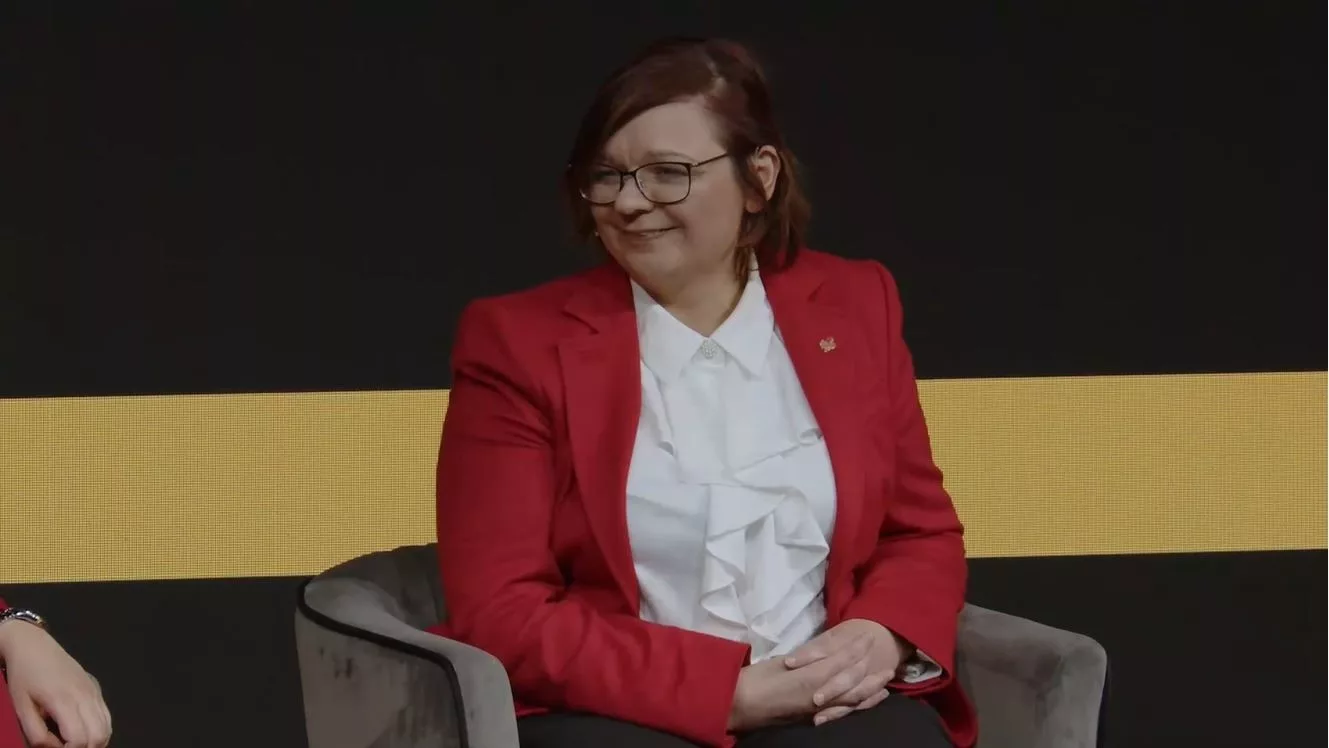
Sliney points out that the “tokenize everything mantra” isn’t necessarily good, and it isn’t always applicable. People should carefully consider what should, could, or must be tokenized. She also warns that too much exposure to the concept could lead to fatigue among potential clients.
Bouaynaya says tokenizing real-world assets is the obvious use case, but as Sliney said, not everything needs to be tokenized. He believes there’s value in issuing governance tokens, pointing to Uniswap as an example; it has cleared $2 trillion since its inception. He also highlights the trustless nature of tokens on public blockchains, seeing value there.
Watch: Day Three Highlights at the London Blockchain Conference 2024

 03-04-2026
03-04-2026 
